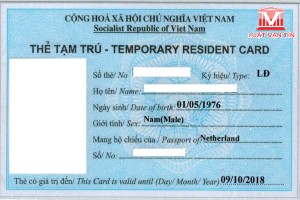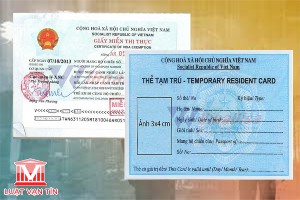LEGAL ADVICE ON RESOLVING LABOR DISPUTES
In reality, it usually occurs some labor disputes as follows:
I. Disputes over dismissal:
The employer has a responsibility to prove that the employee has done violations, errors and violations which corresponds to the form of any disciplinary action specified in the labor law, labor regulations. To the employee, the employee has the right to prove that they do not violate labor discipline or the violation of labor discipline, but not to the extent of violation up to dismissal in labor discipline ...
II. Disputes on unilateral termination of the labor contract:
Employees sue about being unilaterally terminated the labor contract, the employee is obliged to prove that he/she is unilaterally terminated labor contracts by the employer. Once you have a basis for determining if the employer unilaterally terminates a labor contract, the employer is obliged to prove the termination of the labor contract is lawful.
III. Re-signing labor contracts:
Under the provisions of Clause 2, Article 22 of the Labor Code in 2012 on agreement in signing a new labor contract. Based on this provision, after the indefinite term labor contract expires, if there are sufficient grounds to determine that the employee is still working, then within 30 days from the date of expiration of the labor contract, the parties are required to sign a new labor contract. If, within 30 days, the employee continues to work after the expiration of the labor contract and the employee is paid for the working days, but because of that the parties assume that they may terminate the labor contract within 30 days, the employer has terminated the labor contract due to expiry of the labor contract, such termination is unlawful.
IV. Compensation of wages during the days the employee is not entitled for working:
This is the resolution of the consequences of the unilateral termination of the labor contract. In principle, the employer must compensate the employee with wage and salary allowances (if any), calculated from the date the employee must take leave until the employer arranges for employees to return to work. However, the determination of employee time off work must be based on the duration of the labor contract signed. If at the time of the court hearing the case that the labor contract has expired, the period the employee may not work and are compensated only to the date of expiration of the labor contract. If the signed labor contract is the indefinite term labor contract or the time when the Court hears the case that the labor contract has not expired, the Court requires the employer for compensation only at the time of the first instance trial.
V. Compensation for breach of the notice period:
Unilaterally terminating labor contracts can only be lawful or unlawful. Right to unilaterally terminate the labor contract law as the case may terminate the labor contract pursuant to the provisions of Clause 1, Article 38, does not violate the procedures prescribed in Clause 2, Clause 3 of Article 38 of the Labor Code. Unilaterally terminating the labor contract is unlawful termination of a labor contract without grounds, in violation of the labor contract termination procedure stipulates that the Labor Code, which has procedures of prior notice. If unilateral termination is lawful, the parties terminate the labor contract without compensation. Thus, compensation for breach of the notice period set out only to unilaterally terminate the labor contract as unlawful. The unilateral termination of the labor contract, although there are grounds specified in paragraph 1 of Article 38 of the Labor Code, but if violation of the prior notice procedure, it is still unlawful unilateral termination of labor contracts and the party with unlawful unilateral termination must compensate for breach of the notice period.
When a labor dispute occurs, the employee and the employer must pay attention to the issues mentioned above. However, it is especially important in cases of dispute in which such a party is the plaintiff, the plaintiff must be obliged to provide evidence to prove their claims, the defendants want to reject obligations, such parties must demonstrate that they have properly performed all obligations under the agreement or prescribed by law. Therefore, in addition to relying on the grounds prescribed by law, the parties must know the search, verification, collection of evidence and submissions to the Court for consideration and settlement.
Please contact us, LVT Lawyers, Lawyers on consulting to resolve labor disputes.
LVT Lawyers with a team of lawyers with many years of experience in consulting to resolve the labor disputes. Along with the enthusiasm and dedicated work, we assure the customer to always put the interests of the client on the top to fit the motto "Our services, your success". LVT Lawyers provides consulting services in resolving labor disputes as follows:
-
Consulting on how to deal with labor disputes, procedures for settling labor disputes.
-
Guiding and consulting to clients the lawsuit procedures, conditions for a lawsuit to the competent court.
-
Drafting applications, requests and other relevant documents to clients;
-
Consulting to client about recommendations to the legal proceedings agencies relating to the promulgation of the decision not to due process, legal procedures ... affecting the legal rights and interests of clients.
-
Conducting to gather evidence - documents, examination and assessment of the evidence - documents to be submitted to the Court;
-
Making specific plans most beneficial during negotiation, mediation (if any);
-
Participating in the proceedings as a defense attorney, to protect the rights and legitimate interests in court for clients at all levels;
-
Participating in legal proceedings as authorized representative of the clients to perform all the measures and the manners prescribed by law to protect the legitimate rights and interests of the clients in the best way at the court level.
-
Representing clients in enforcement of Judgments, Decisions with legal effect.




